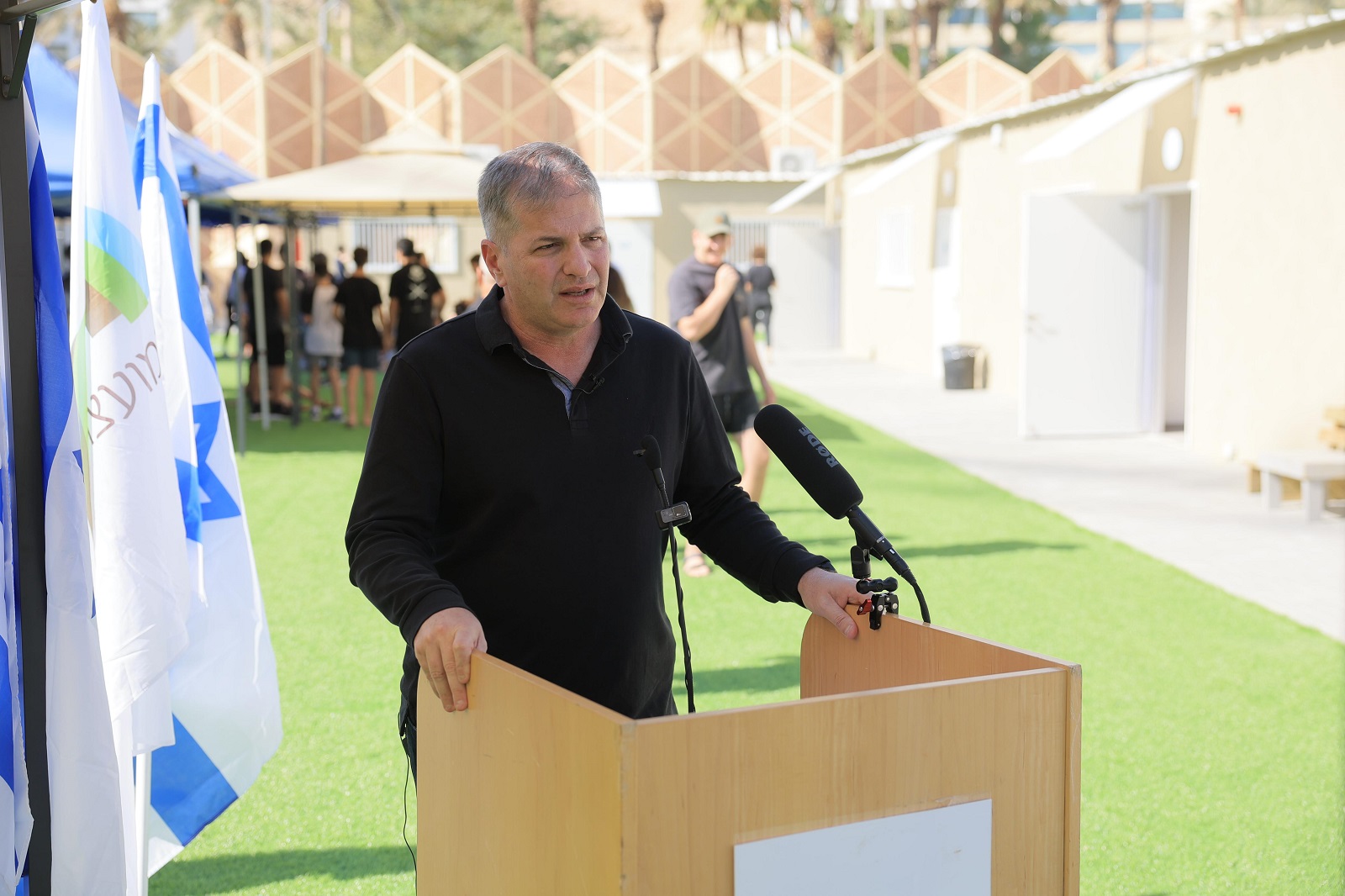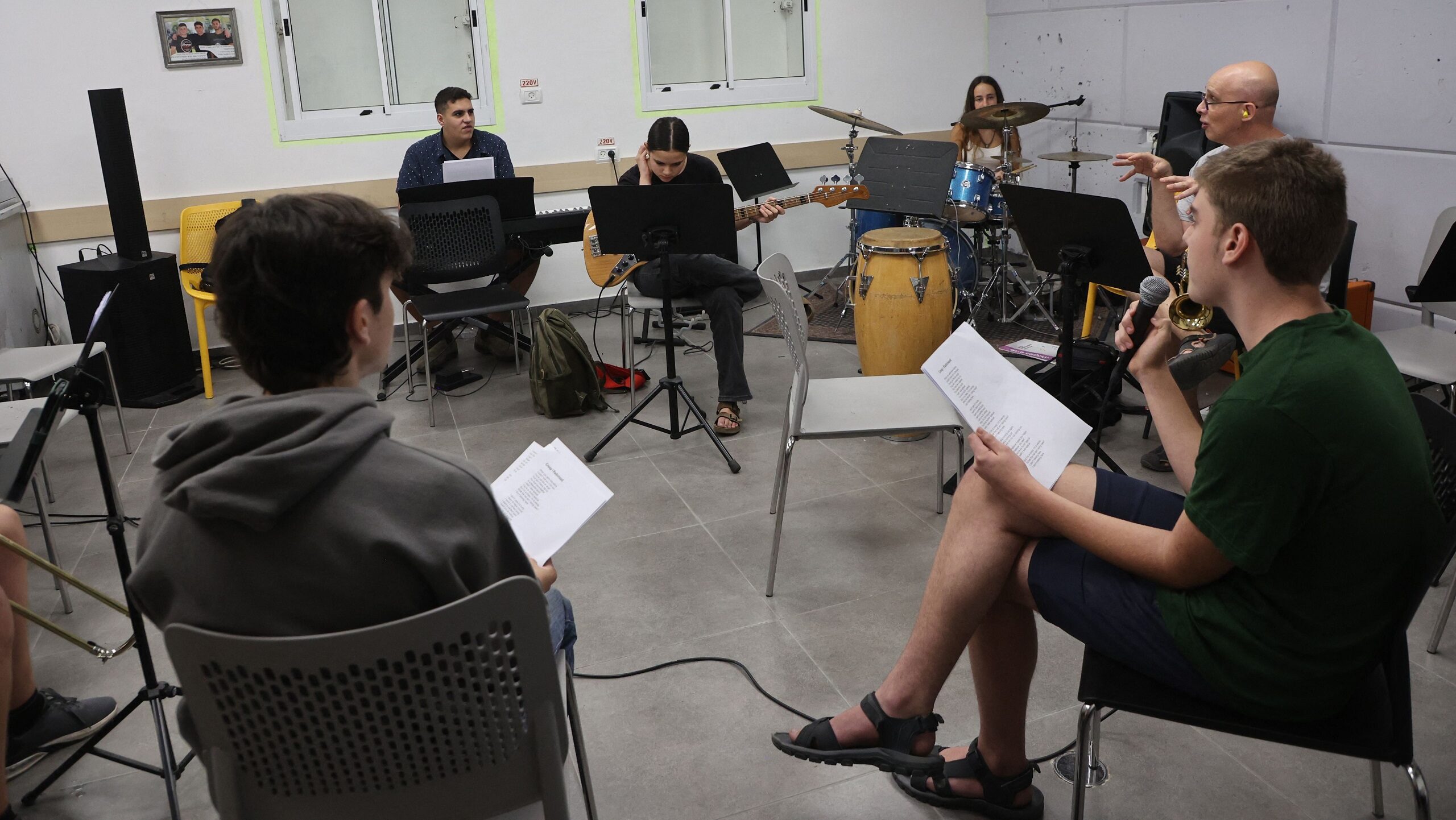Balancing Books and Shelters: Work and Study in Wartime
Jewish and Arab parents alike are struggling to juggle work and their children’s education during the intensifying war
The Israel-Hamas war has caught many families in Israel in a battle to balance their work needs with their children’s education, and many parents are struggling to provide the stability their children need to learn while maintaining their livelihoods.
The shifting landscape of education formats, alternating between online Zoom classes and in-person sessions that are sometimes canceled with little notice, has only deepened the struggle. The uncertainty leaves parents grappling with tough decisions, often resulting in reduced work hours so they can be present for their children, at the cost of their income.
We are very much being affected by the situation around us
“We are very much being affected by the situation around us,” Areen Al-Tunsi, an Arab social worker and guidance counselor with the Hebrew University of Jerusalem’s leadership program Al Bashair, told The Media Line.
“And what’s ironic is that we, as guidance counselors, must have a positive mental capacity for our students, but slowly we are becoming drained by the situation,” Al-Tunsi said.
Al-Tunsi is among the many mothers and full-time workers who are struggling to balance their professional and personal lives during the war.
Rebecca Sigala, a Jewish fine arts boudoir photographer and body image coach, revealed a similar struggle. With her husband serving in the military reserves, she has found herself juggling her business, household responsibilities, and motherhood to her three children.

Rebecca Sigala, fine arts boudoir photographer and body image coach. (Courtesy)
“It’s really difficult in terms of running the household and the business because my husband and I are partners both in business and at home. Taking all of this on myself while he’s called to the reserves is very difficult,” Sigala told The Media Line.
Representatives from Israel’s Education Ministry and Labor Ministry are working on ways to alleviate the pressing issues.
The Labor Ministry disclosed that 46,004 workers had been laid off since the war began, with 70% of them relying on unemployment benefits. About 760,000 more people, around 18% of the workforce, are unable to work due to various factors related to the conflict.
Rivka Werbner, chief labor relations officer in the Labor Ministry, told The Media Line: “We are in a reduction of workers now; the economic situation is in a reduction too. You can see how not all the stores are opening because they are scared, and there is a noticeable reduction in sales. No one wants to buy anything.”
Some parents, like Rana Hitti Nejem, an Arab nurse in the pediatric intensive care unit at Hadassah Ein Kerem Hospital, are finding solace in supportive workplaces.

Rana Hitti Nejem (R), a nurse in the pediatric intensive care unit at Hadassah Ein Kerem Hospital in Jerusalem, with her family. (Courtesy)
“I have an amazing head nurse, and she understands my situation,” Nejem told The Media Line. “She helps me consolidate my shifts into an intense three days, allowing me to be with my child for the rest of the week.”
Many mothers are concerned about the learning environment for their children.
“The way the schedule is for my daughter’s school and how they aren’t consistent is tiring her mental health,” Al-Tunsi said.
The Education Ministry has tried to address the uncertainty by taking significant measures to ensure a safer environment for schools across the country, even providing temporary accommodation in hotels for children from the kibbutz communities displaced during the war.
Arie Mor, an emergency security and safety representative at the Education Ministry, told The Media Line about some of the initiatives.
“We have procedures, and we prepare the schools and the alarms and shelters in the schools, all over the country. We are also preparing specific staff to advise the children and how to behave and stay calm during these situations,” Mor said.
Sigala said that at her son’s school, “they have safe rooms and bomb shelters, so physically I feel that they are safe there, they have protocols and places to go, and the security team and police forces are protecting their school.”
However, she said that the war and the absence of his father were having an impact on her son, and he was having therapy and taking part in other activities provided by the community to help with the emotional aspects.
“A woman offered to volunteer her time to do expressive art therapy with my son, and it’s helping him in the emotional aspect. And someone from my community started a big brother program and they hooked him up with someone who is 16, and my son is 11 and they play sports together,” Sigala said.
Mor said the Education Ministry is creating 315 schools in hotels and setting up study schedules for each group.
A ministry press release details the opening of a new school in the Tamar Regional Council, near the Dead Sea.
Israel’s Education Minister Yoav Kisch on Wednesday inaugurated a new school in the Tamar Regional Council for children displaced by the ongoing conflict. Located close to the Dead Sea, the school is designed to accommodate up to 400 students in grades one through 12, providing a semblance of normalcy for evacuees from the Eshkol Regional Council, including those from Kibbutz Be’eri. The facility comprises 15 classrooms, ensuring continued education for the young evacuees during these turbulent times.

Education Minister Yoav Kisch speaks at the opening of a new school for Gaza area evacuees near the Dead Sea, Nov. 8, 2023. (Education Ministry Spokesman’s Office)
In addition to the stress of balancing childcare responsibilities with work, there is a gradual effect on many families’ income.
“My salary is affected by the situation, but not drastically, because it depends on the shifts I can take throughout the week,” Nejem said.
Al-Tunsi said she was now facing a lack of shifts.
“My salary has been affected by the situation because my work hours have [been reduced]. There are a lot of times when the schools I give guidance classes to tell me not to come in because my class is no longer a priority in comparison to their regular day-to-day classes,” she said.
I earned significantly less in October than I usually do, but I believe I’ll be alright. I have faith in what I do, despite the challenges
However, some entrepreneurs like Sigala have found alternative ways to sustain their income.
“I earned significantly less in October than I usually do, but I believe I’ll be alright. I have faith in what I do, despite the challenges,” Sigala said. “I organized a fundraiser for my business, offering intimate photoshoots for partners in the reserves. The concept is to provide them with a reprieve from the bleak reality and allow them to reconnect with themselves and their sexuality. So far, I have raised $2,500.”
Lana Ikelan is a recent graduate of the Hebrew University of Jerusalem and an intern in The Media Line’s Press and Policy Student Program.


